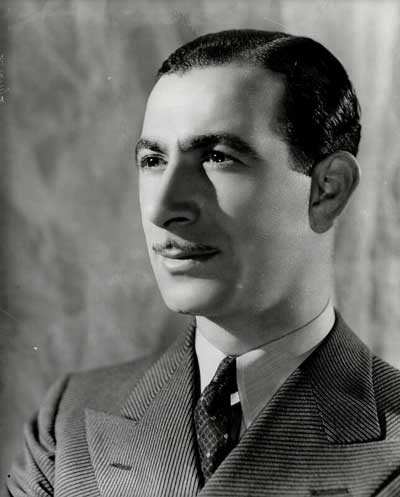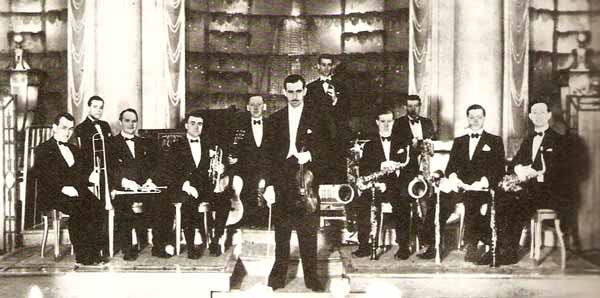MAURICE WINNICK: Band Leader, violin & saxophone. (Manchester, March 28th 1902 – Westminster London, May 26th 1962)
Maurice Winnick is known as the British Guy Lombardo. “Indeed, he used Lombardo’s charts with the full co-operation of both Guy and his arranger brother, Carmen Lombardo.” He even used Lombardo’s The Sweetest Music This Side of Heaven as his theme tune.
He was leading bands in his teens and throughout the 1930’s worked at prestigious venues such as the Hammersmith Palais de Danse, the Carlton Hotel, Ciro’s Club, the Casino Club, the San Marco Restaurant and the Mayfair Hotel.
Al Bowlly first appeared with Winnick in a session on July 10th 1931 which was released on the Regal label. They recorded a Topical Tunes Medley, (Part 2, shows Winnick could also play “Hot” music) and two “Sweet” sides, Springtime Reminds Me Of You and The Waltz You Saved For Me.
It was December 29th1937 before they recorded again. This time for Decca and as Maurice Winnick and His Sweet Music. Bowlly had just returned from the US after his throat operation and these were the very first sides recorded back home in London. Bei Mir Bist Du Schoen, There's A Gold-Mine In The Sky and Kiss Me Goodnight. The operation was a success and although Bowlly’s voice had changed, many would say for the better. They recorded a few more sessions in 1938 and the last ones in 1940.
Winnick employed some of the best musicians in the UK. He worked with Ted Heath, Bill Shakespeare, Don Barrigo, Don Lusher, Robert Farnon and Norrie Paramor. His singers, including, Sam Costa, Harry Bentley, Judy Shirley, Vera Lynn, Hughie Diamond, Ronnie Odell, Dorothy Carless, Sam Browne, Elsie Carlisle and of course Al Bowlly.
Winnick toured Europe and the Middle East with ENSA during the Second World War.
“After the war Winnick eventually disbanded his own orchestra and became an impresario and a leading packager of programmes for radio and television, buying the UK rights for US produced series. The phrase “by arrangement with Maurice Winnick” was heard on BBC radio programmes such as Ignorance is Bliss (first aired in 1946), based on the US series It Pays to be Ignorant, Twenty Questions (1947) and The Name’s the Same (1953), also based on an American original format. For BBC television there was What’s My Line (1951) - a radio version was also produced, for Radio Luxembourg, between 1952 and 1955.”
Maurice Winnick died, after a long illness, in 1962.


